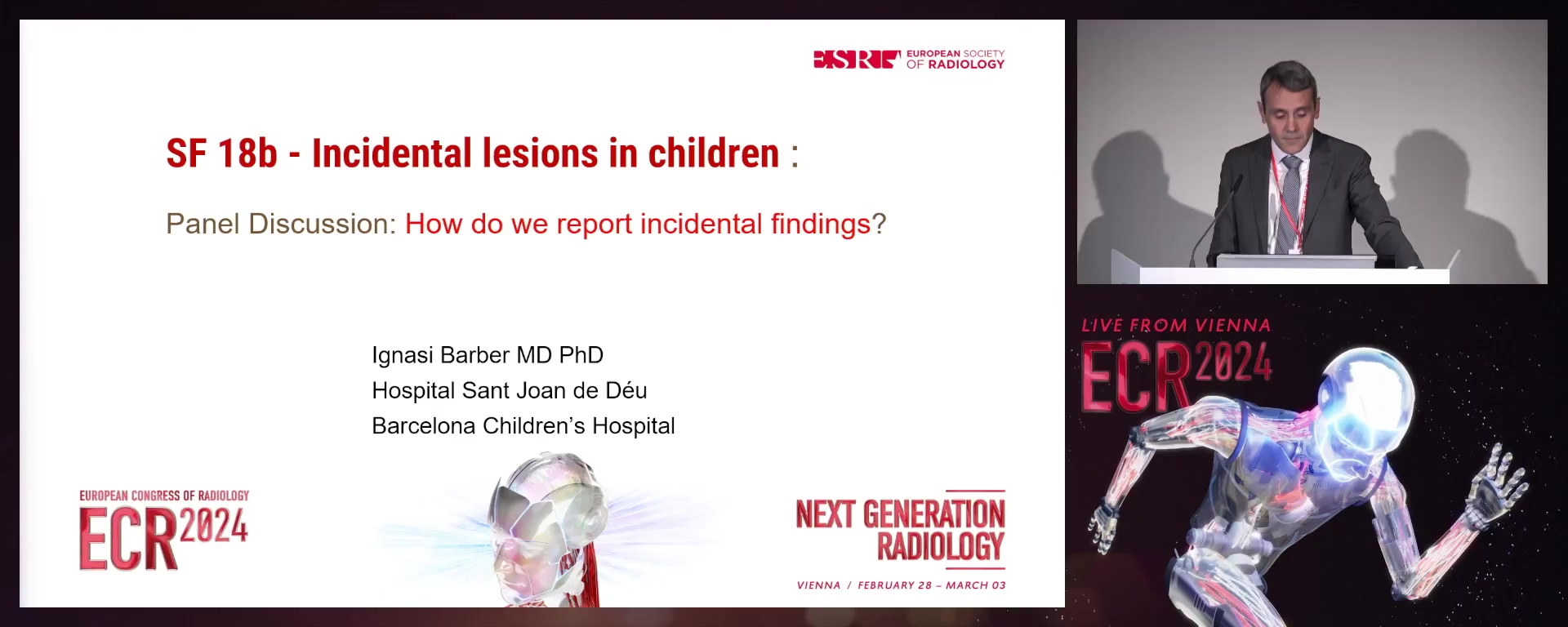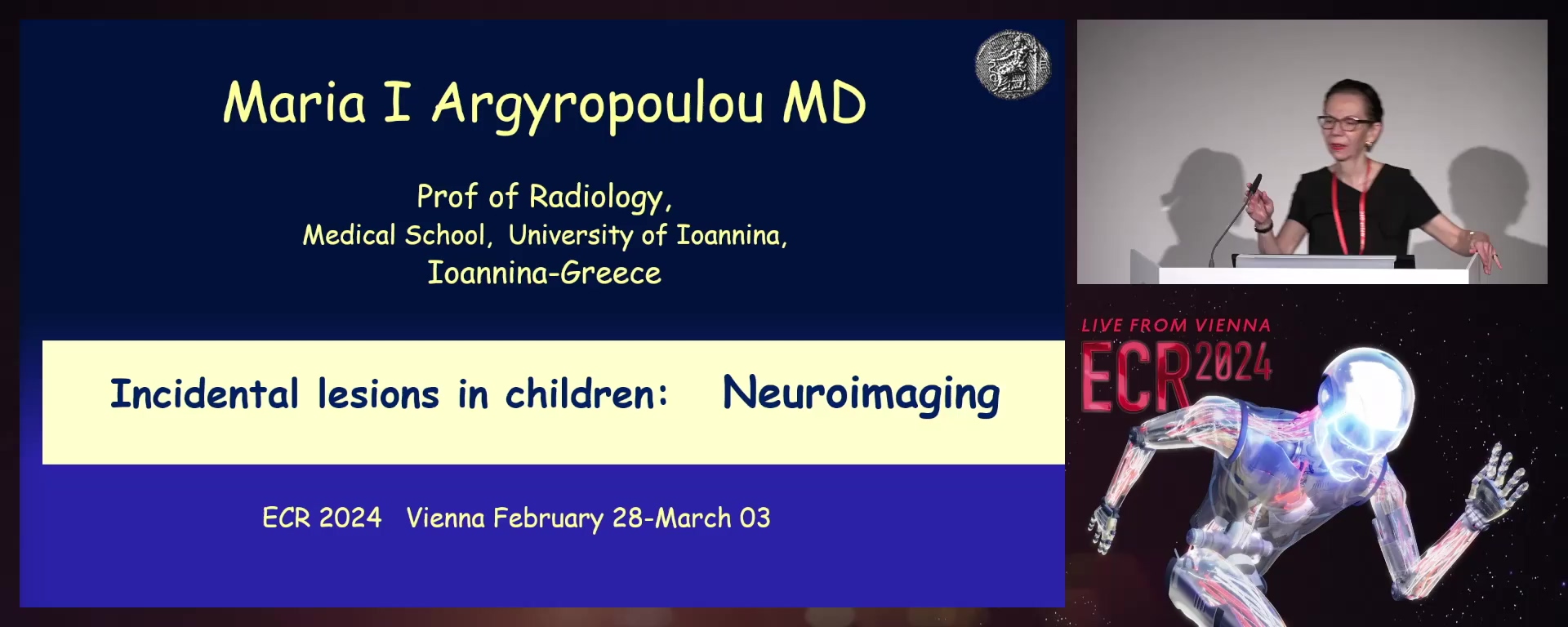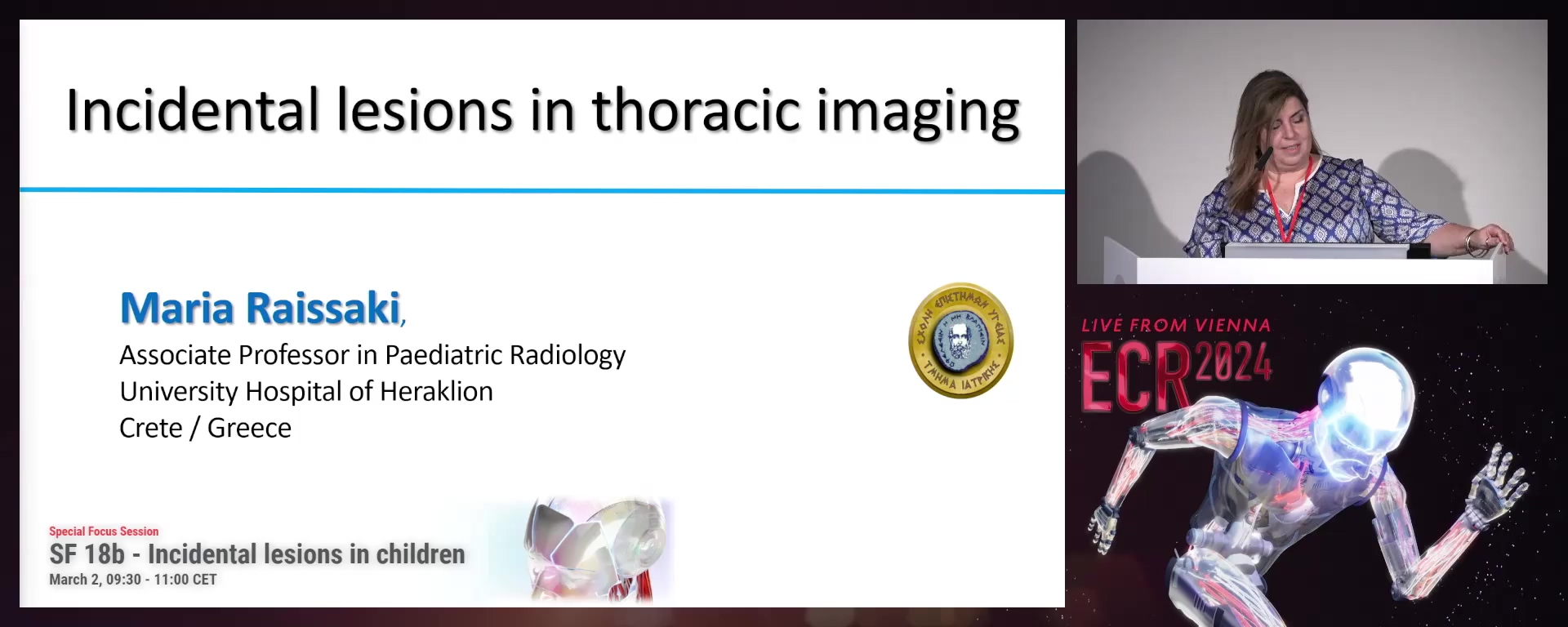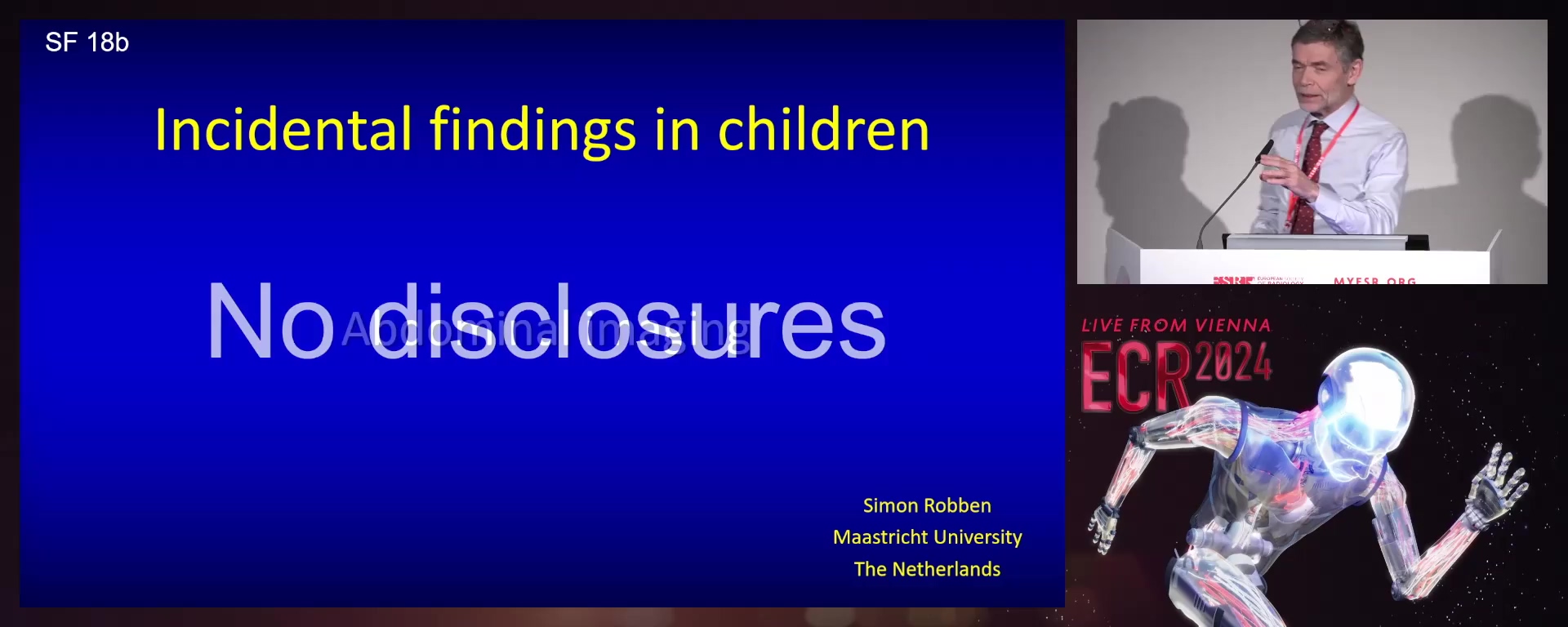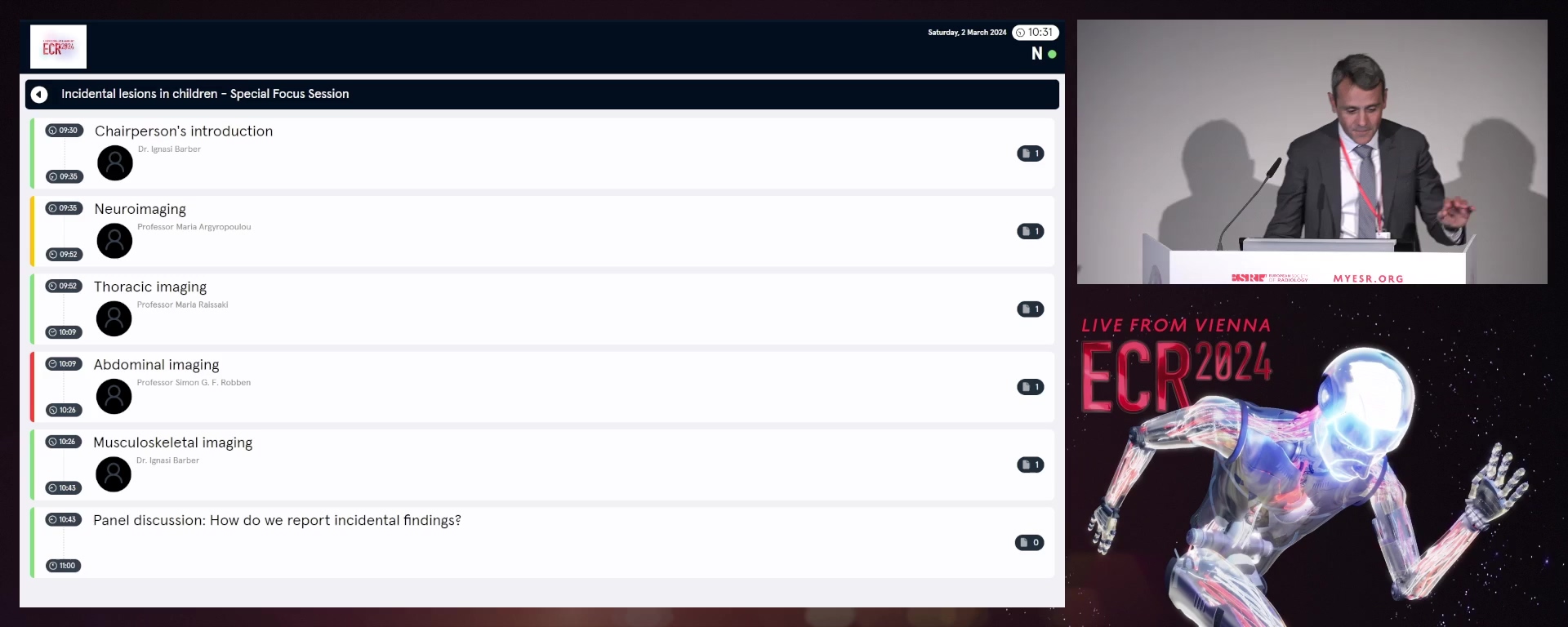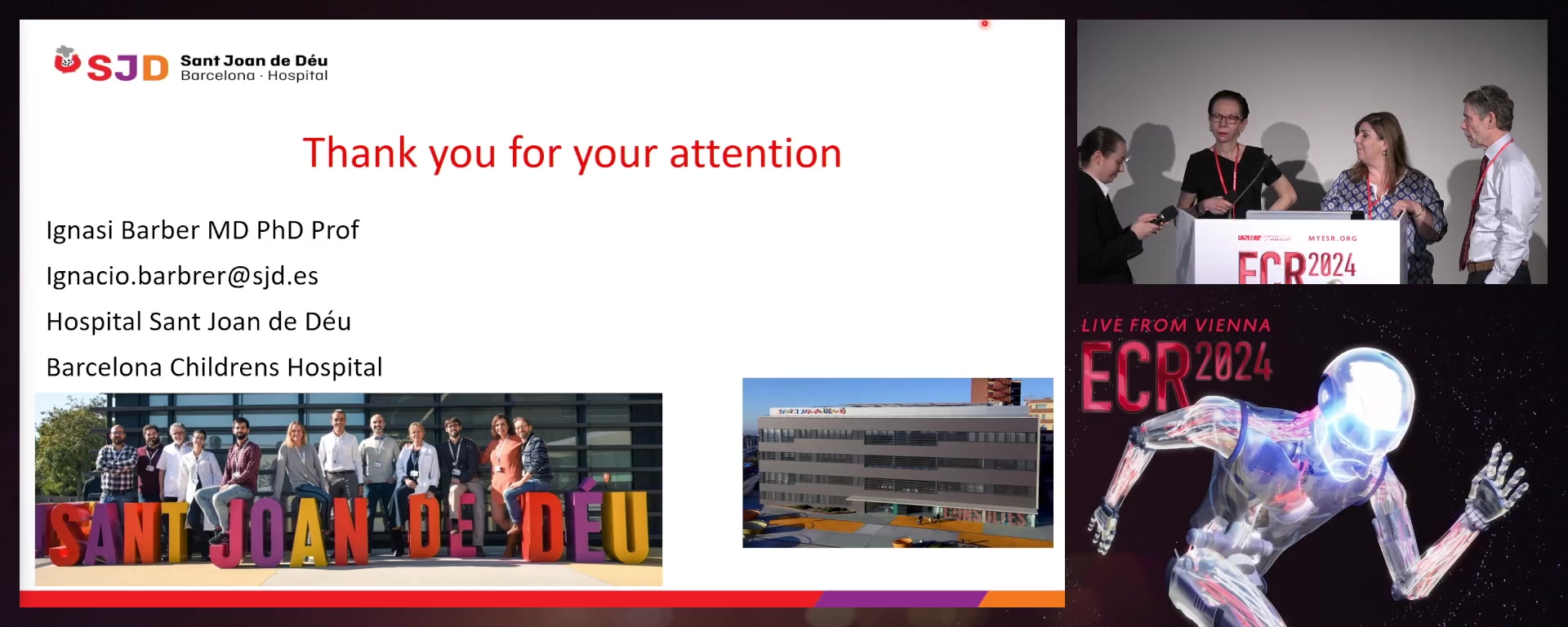Special Focus Session
SF 18b - Incidental lesions in children
5 min
Chairperson's introduction
Ignasi Barber, EspluguesdeLlobregat / Spain
17 min
Neuroimaging
Maria Argyropoulou, Ioannina / Greece
1. To acknowledge developmental changes during maturation of the brain, as assessed on ultrasound, CT or MRI.
2. To recognise the most common incidental findings in immature brains.
3. To understand if and when to follow up.
2. To recognise the most common incidental findings in immature brains.
3. To understand if and when to follow up.
17 min
Thoracic imaging
Maria Raissaki, HERAKLION / Greece
1. To recognise the most common incidental findings in chest imaging, as assessed radiographically, by CT or MRI.
2. To understand when to follow up and how to guide the clinicians.
2. To understand when to follow up and how to guide the clinicians.
17 min
Abdominal imaging
Simon G. F. Robben, Maastricht / Netherlands
1. To identify the more common incidental findings in abdominal imaging, as assessed on radiographs, ultrasound CT or MRI.
2. To acknowledge if and when to follow up.
2. To acknowledge if and when to follow up.
17 min
Musculoskeletal imaging
Ignasi Barber, EspluguesdeLlobregat / Spain
1. To recognise developmental changes of the skeleton during maturation.
2. To identify the more common incidental findings.
3. To acknowledge the need for, or lack of the need for, a follow-up.
2. To identify the more common incidental findings.
3. To acknowledge the need for, or lack of the need for, a follow-up.
17 min
Panel discussion: How do we report incidental findings?
